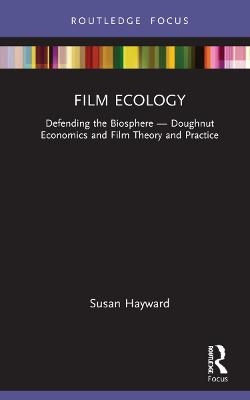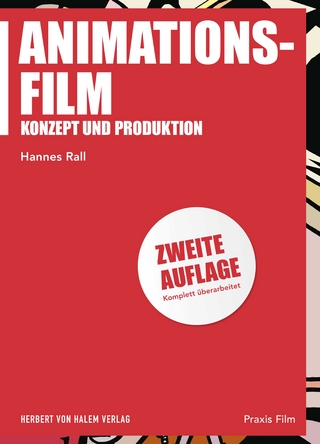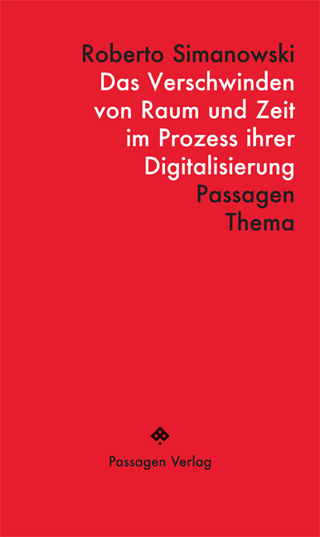
Film Ecology
Defending the Biosphere — Doughnut Economics and Film Theory and Practice
Seiten
2020
Routledge (Verlag)
978-0-367-26551-9 (ISBN)
Routledge (Verlag)
978-0-367-26551-9 (ISBN)
Using the Regenerative economic model - also known as Doughnut Economics - Susan Hayward offers a thought-provoking sketch for a renewed, tentatively revolutionary, approach to both film theory and film practice.
Using the Regenerative economic model – also known as Doughnut Economics – Susan Hayward offers a thought-provoking sketch for a renewed, tentatively revolutionary approach to both film theory and film practice.
This book attempts to answer the questions posed by T.J. Demos (in Against the Anthropocene, 2017): how do we find a way to address planetary harm and the issues it raises within the field of Film Studies? How do we construct a theoretical model that allows us to visualize the ecological transgressions brought about by the growth-model of capitalism which is heavily endorsed by mainstream narrative cinema? By turning to the model set out in Kate Raworth’s book Doughnut Economics (2017) and adapting its fundamental principles to a study of narrative cinema, Film Ecology proposes to show how, by using this model, we can usefully plot and investigate films according to criteria that are not genre/star/auteur-led, nor indeed embedded in anthropocentric theoretical models, but principles which are ecologically based. These arguments are brought to life with examples from mainstream narrative films such as The Giant (1956), Mildred Pierce (1945), Erin Brockovich (2000), Wall Street (1987), Hotel Rwanda (2004), and Missing Figures (2016).
This approach will inspire film practitioners, film theorists, critics and analysts, film students and film lovers alike to consider how they might integrate this Doughnut model into their thinking or work as part of their process.
Using the Regenerative economic model – also known as Doughnut Economics – Susan Hayward offers a thought-provoking sketch for a renewed, tentatively revolutionary approach to both film theory and film practice.
This book attempts to answer the questions posed by T.J. Demos (in Against the Anthropocene, 2017): how do we find a way to address planetary harm and the issues it raises within the field of Film Studies? How do we construct a theoretical model that allows us to visualize the ecological transgressions brought about by the growth-model of capitalism which is heavily endorsed by mainstream narrative cinema? By turning to the model set out in Kate Raworth’s book Doughnut Economics (2017) and adapting its fundamental principles to a study of narrative cinema, Film Ecology proposes to show how, by using this model, we can usefully plot and investigate films according to criteria that are not genre/star/auteur-led, nor indeed embedded in anthropocentric theoretical models, but principles which are ecologically based. These arguments are brought to life with examples from mainstream narrative films such as The Giant (1956), Mildred Pierce (1945), Erin Brockovich (2000), Wall Street (1987), Hotel Rwanda (2004), and Missing Figures (2016).
This approach will inspire film practitioners, film theorists, critics and analysts, film students and film lovers alike to consider how they might integrate this Doughnut model into their thinking or work as part of their process.
Susan Hayward is Emeritus Professor of Cinema Studies at Exeter University. She is the author of numerous books on French Cinema and Cinema Studies: The Key Concepts (now in its fifth edition).
Introduction
Chapter One: Film and ecology, Doughnut Economics, and film theory
Chapter Two: Film and the Anthropocene: dirty Capitalism – Mildred Pierce (1945), Tulsa (1949), and Giant (1956)
Chapter Three: Where we are now and where we need to be: from Source and Sink to Take->Make->Use->Re-use – Erin Brockovich (2000), Wall Street (1987), and The Wolf of Wall Street (2013)
Chapter Four: A moral imperative to REVOLT: Hotel Rwanda (2004) and Caphernaüm (2018)
| Erscheinungsdatum | 27.03.2020 |
|---|---|
| Zusatzinfo | 13 Line drawings, color; 2 Halftones, color; 15 Illustrations, color |
| Verlagsort | London |
| Sprache | englisch |
| Maße | 138 x 216 mm |
| Gewicht | 453 g |
| Themenwelt | Kunst / Musik / Theater ► Film / TV |
| Sozialwissenschaften ► Kommunikation / Medien ► Medienwissenschaft | |
| Wirtschaft ► Volkswirtschaftslehre | |
| ISBN-10 | 0-367-26551-6 / 0367265516 |
| ISBN-13 | 978-0-367-26551-9 / 9780367265519 |
| Zustand | Neuware |
| Informationen gemäß Produktsicherheitsverordnung (GPSR) | |
| Haben Sie eine Frage zum Produkt? |
Mehr entdecken
aus dem Bereich
aus dem Bereich
wie KI und virtuelle Welten von uns Besitz ergreifen – und die …
Buch | Hardcover (2023)
Heyne (Verlag)
22,00 €
Buch | Softcover (2023)
Passagen (Verlag)
18,00 €


